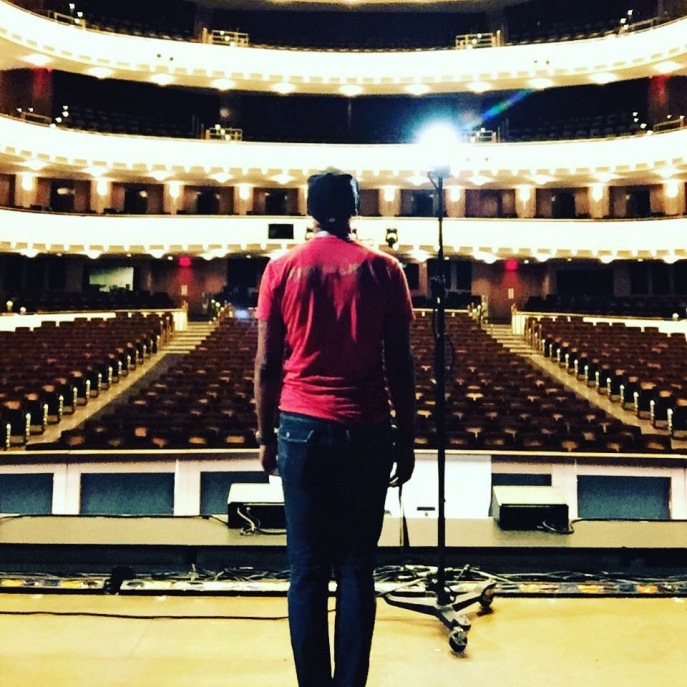Being me is not easy. I am supposed to speak a certain way, dress and date conservatively, wear my hair “traditionally,” and succumb to societal norms. I am not defined by my actions and character but, my outer appearance or the tone of my voice. I am told I have to work twice as hard as any other race. And no matter how much I tried to concede to the provided standard, acceptance never chose me. So…what do I do – I go back to the drawing board, the real me.
What did she say?
You go to school and taught to speak properly, annunciate your words and speak with diction and conviction. Subjected to peer pressure, you defy what authority states you do and become creative with your words.
In 1999, Aaron Peckham created the Urban Dictionary for fun but, unbeknown to him, it became more than just fun; it became life. In 2012 there were more than 6.3 million untraditional words defined – proving urban terminology carries as much weight verses the conventional way of speaking. Proving vocabulary is meant to be colorful and explored. I say “Good Morrow” or when asked how I am doing, I say, “Well” and mocked in return.
Which is it, do you want me to speak properly, speak with urban dialect, merge the two or…? I sure as hell don’t know.
What is she wearing?
I could never dress the way society would socially accept me because of the contour of my body. I learned what best fit my figure and made it work for me. However, if I wore a pencil or skater skirt, I was condemned or said as being too racy for the clothes I wore. “Oh! She’s trying to get a promotion.” The only way I could get away with appearing professional was by wearing clothing twice my size and who wants to do that. The same with the African American female teacher in Atlanta, who wears bodycons to work with sweaters and is still chastised where as others wear body cons (no sweaters), mini skirts and see through shirts and they are viewed as professional. Still confused.
Why does your hair look that way?
As I began to embrace the skin I am in, I also began to luv my hair in its natural state. The versatility it yielded. But I had to be different; it wasn’t enough to have natural hair, I also had to dye it red. How dare I? My cousin said one day, “My mom won’t allow me to dye my hair red because she said it is ratchet and ghetto.” Hmmm. I guess I am ratchet though none of my actions exemplify it.
Then, I arrive to work one day after I changed the style and color of my hair and my coworker says, “Oh! Your hair is nice. The color is more inviting/welcoming. (My current color is more of a natural “dark brown” color with burgundy/auburn highlights)” versus my fire-engine red hair.
Basically saying that I should succumb to the standards of society – blend in. However, Marc Jacobs can appropriate our culture of having all white females on the runway with locs because if “black females can appropriate their hair by straightening it then, why can’t I do the same.” Oh! Aight.
Doesn’t she want to succeed?
If she wanted to succeed, she should listen and do what is asked of her. “Sometimes you have to look at the bigger picture. Do you your job. No more, no less.” He said, “As long as you are providing steady income, what does it matter if you are right and they are wrong.” He exclaimed definitively. “You will not elevate your success if you keep ‘bucking’ the system.”
Okay…
Well you know what? “I reject your reality.” I’ve tried fitting in and “keeping up with the Joneses.” It failed. I am not your ideal truth. I am a black female, with curvy hips, natural hair, poetic speech, determined mind, and person who does not accept no as answer. I grind, for what I want, I have conviction for right vs. wrong. I may not always make the best decisions but, I try to a fault. My hair is red, my skin is a beautiful chocolate brown, my accent has a hint of urban in it but, she speaks proper; this does not define me. What defines me is my humble personality, my luv to help others, my thirst for knowledge, the want to make a change – a positive change, the need to laugh and in doing so, make others smile. I am a single black female who is succeeding on her own terms. It may not be the traditional way but…I am doing it my way (in my Sinatra voice).

picture courtesy of Pinterest
 Clara Belle Drisdale. Valedictorian of her class at Prairie View Normal and Independent College, ca. 1905
Clara Belle Drisdale. Valedictorian of her class at Prairie View Normal and Independent College, ca. 1905
 (Photo Courtesy of Damon Mackin)
(Photo Courtesy of Damon Mackin)







